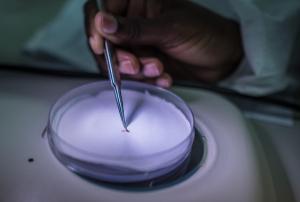Cabo Verde attains zero local malaria transmission
Praia – Cabo Verde has gone for three consecutive years – as of January 2021 – without local malaria transmission, becoming eligible to apply for the World Health Organization (WHO) certification of malaria elimination.
Cases have progressively declined over the last three decades and in the past three years, the country reported zero indigenous cases.
Certification of malaria elimination is the official recognition by WHO of a country’s malaria-free status. WHO grants this certification when a country has proven, beyond a reasonable doubt, that the chain of local transmission of all human malaria parasites has been interrupted nationwide for at least the past three consecutive years, and that a fully functional surveillance and response system that can prevent re-establishment of indigenous transmission is in place.
If approved, this would be the third time Cabo Verde will be validated following its elimination of malaria. The first time was in 1968 and the second in 1983. The resurgence of the disease is accredited to subsequent lapses in vector control that led to a return of the disease.
By 2015, the country had reduced indigenous malaria transmission to only seven cases. However, imported cases led to an outbreak at the end of 2017, when the country recorded 423 indigenous infections in the capital Praia.
“The current achievement is attributed to a robust vector control, a rapid case detection and prompt treatment which helped to significantly reduce cases in areas of transmission. The implementation of preventive strategies also helped to eliminate malaria as a health threat in the country. This strategy has resulted in high rates of adherence to antimalarial medication, low mortality rates and, ultimately, zero indigenous cases of the disease,” said Dr Hernando Agudelo, WHO Representative in Cabo Verde.
The country's eligibility for the E-2020 initiative – a WHO initiative launched in 2016 to eliminate malaria in 21 countries by 2020 – strengthened the engagement of the government, civil society, and partners in mobilizing resources to consolidate the elimination of malaria, with gains in health as well as the tourism sector, the environment and the economy. It is also a motivation for accelerating the elimination of the disease at the sub-region and continent level.
Cabo Verde is focusing on malaria surveillance, especially on the detection and diagnosis of suspected cases in heath units, surveillance of imported cases in points of entry and in the communities as well as sustained vector control, including indoor residual spraying.
A five-year national strategic malaria plan that was implemented in 2009 called for the expansion of quality-assured diagnosis in all health facilities, early and effective treatment for all patients and the reporting and investigation of all detected cases.
The plan ensured that treatment and diagnosis would be provided free of charge to international travellers and migrants, an effort to stem the tide of imported cases from mainland Africa.
Most malaria cases are detected passively at the health facilities. Confirmed cases are reported within 24 hours, hospitalized and treated. After discharge recovered patients are monitored once a week for 28 days
The main preventive measures include two annual indoor residual spraying campaigns, regular vector larvae control, malaria control at entry points (airports and ports) and environmental sanitation.
Despite the COVID-19 pandemic, the Ministry of Health has maintained strong commitment to the malaria elimination programme with the allocation of additional human and financial resources to implement priority activities.
Email: epereira [at] who.int




